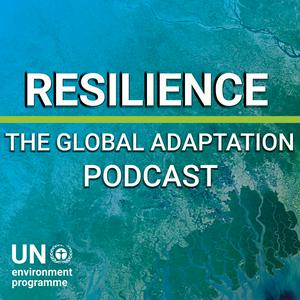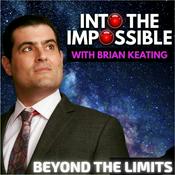Resilience: The Global Adaptation Podcast

14 episódios

How AI Is Tackling Climate Change
19/12/2024 | 29min
From predicting floods before they happen to reforesting landscapes at lightning speed, AI is expected to revolutionize how we adapt to climate change. But with great power comes great responsibility. And can we really tackle climate change with machines that produce titanic quantities of carbon emissions and waste? Himanshu Gupta, CEO of ClimateAI, shares his journey from rural India to Silicon Valley, revealing how AI is helping farmers grow climate-resilient crops. Plus, Eleonore Fournier-Tombs from the UN University shares some groundbreaking uses of AI and how to balance innovation with ethics. Find out more:· Report: Navigating New Horizons· Artificial Intelligence End-to-end· Climate AI· United Nations University Centre for Policy Research

How the Media Covers Climate Adaptation
13/12/2024 | 29min
What makes a climate story go viral? Why are stories so important for making sense of the climate crisis How can the media convey the urgency without breeding despair? Lis and Marcus sit down with The New York Times’ adaptation reporter Christopher Flavelle to explore these questions. Plus, the filmmaker and explorer Malaika Vaz shares what it’s like to capture victims of the climate crisis and tell their story to a global audience.Find out more:· Christopher Flavelle· Untamed Planet· Climate Solutions Series

How To Tackle Extreme Heat
03/12/2024 | 28min
In this episode of RESILIENCE, we look at the growing threat of extreme heat. What does it feel like to live in a city that regularly hits 50°C? How do we adapt when our traditional air-conditioning systems pump out even more planet-heating gases? We explore some bold insights with Professor Toby Peters, a global expert in sustainable cooling, and Shahzad Qureshi, the visionary behind the Urban Forest movement in Pakistan.Find out more:Cool CoalitionUN Secretary General’s Call to Action on Extreme HeatGlobal Cooling PledgeCooler Finance: Mobilizing Investment for the Developing World’s Sustainable Cooling Needs

How To Accelerate Climate Adaptation Finance
27/11/2024 | 23min
Keisha and Marcus dive into the complex but fundamental question of adaptation finance and how to unlock the billions needed to adapt to escalating climate crisis. UNEP’s Executive Director Inger Andersen discusses the key findings from the latest Adaptation Gap Report, highlighting innovative financing solutions and demonstrating why investing in adaptation isn’t just necessary – it’s smart economics. The question isn’t whether we can afford to adapt, but whether we can afford not to.Find out more:· Adaptation Gap Report 2024· UNEP and climate adaptation· Emissions Gap Report 2024

How Restoring Nature Can Heal The Climate
19/11/2024 | 31min
Lis and Marcus pose what could be one of the most important questions of the 21st century – to what extent can restoring nature tackle the climate crisis? The award-winning restoration hero Constantino Aucca Chutas explains what drove him to plant ten million trees to protect his indigenous community from the impacts of melting glaciers. Plus, Mirey Atallah from UNEP tells us why a grand restoration project in Africa is generating hope for the future. Find out more:UN Decade on Ecosystem RestorationThe Great Green Wall of AfricaGlobal Fund for Ecosystem-based AdaptationWhat Is Ecosystem-based Adaptation?Acción Andina
Mais podcasts de Ciência
Podcasts em tendência em Ciência
Sobre Resilience: The Global Adaptation Podcast
Ouça Resilience: The Global Adaptation Podcast, Hidden Brain e muitos outros podcasts de todo o mundo com o aplicativo o radio.net

Obtenha o aplicativo gratuito radio.net
- Guardar rádios e podcasts favoritos
- Transmissão via Wi-Fi ou Bluetooth
- Carplay & Android Audo compatìvel
- E ainda mais funções
Obtenha o aplicativo gratuito radio.net
- Guardar rádios e podcasts favoritos
- Transmissão via Wi-Fi ou Bluetooth
- Carplay & Android Audo compatìvel
- E ainda mais funções


Resilience: The Global Adaptation Podcast
baixe o aplicativo,
ouça.





































